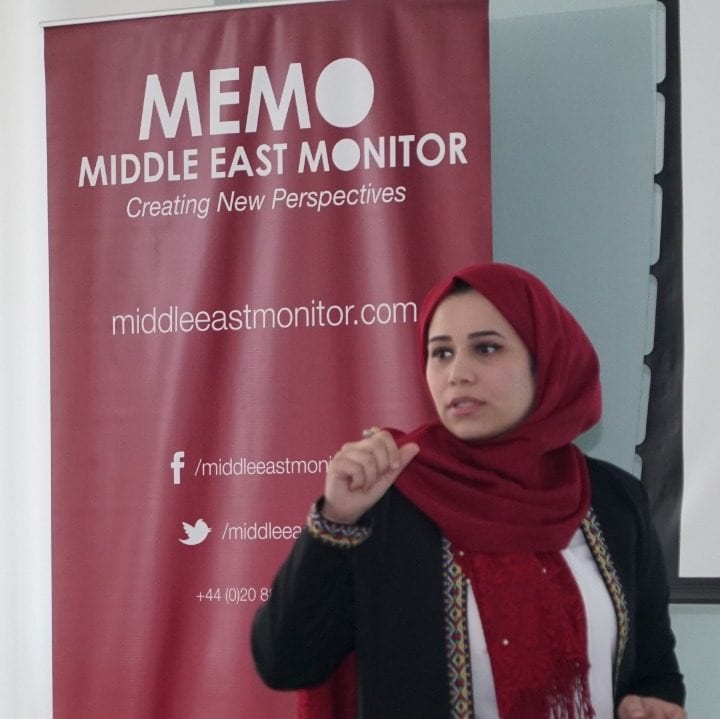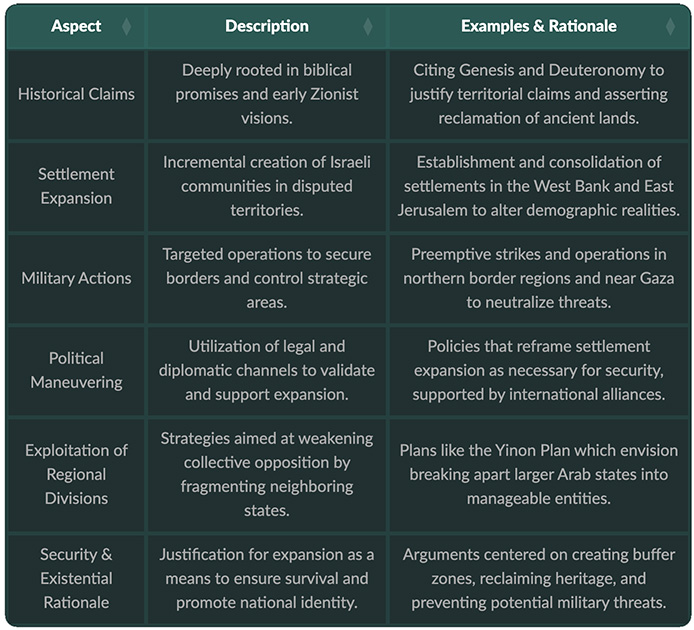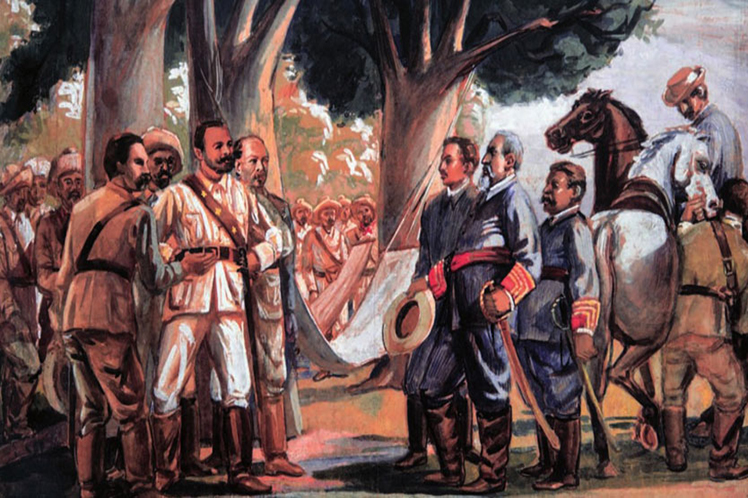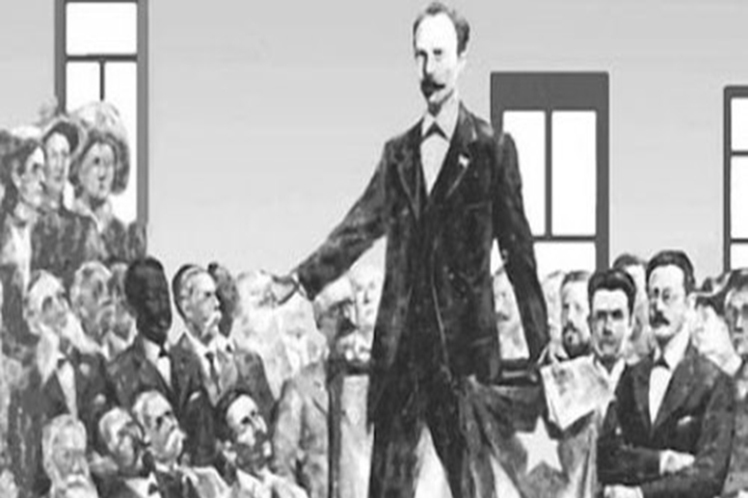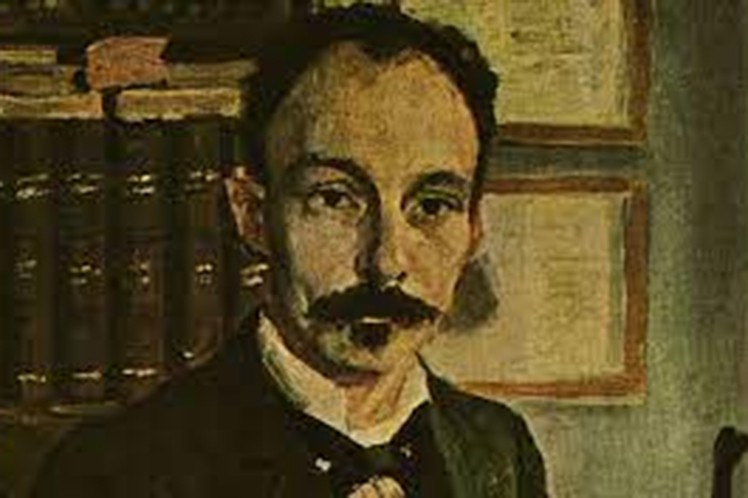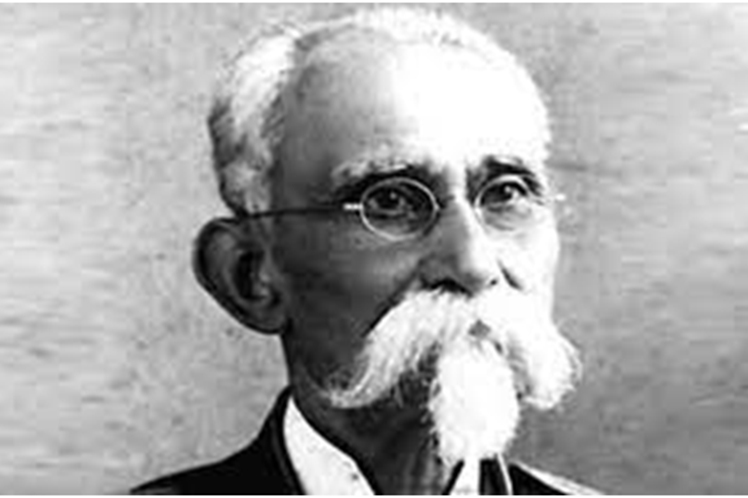At the time of writing, although in a coma, the 80-year-old’s doctors have said that she is still fighting.

Political and social mural painting and graffitis illustrating the Palestinian woman Leila Khaled on the Israeli West Bank barrier in Bethlehem on April 10, 2014 in Palestine [Frédéric Soltan/Corbis via Getty Images]

It is with great sadness that I am writing this article about an amazing woman whose life in this world must be remembered for its drama, courage and determination. Her name is Leila Khaled and she was a source of inspiration and admiration for thousands of bewildered teenage girls in the 1970s, including myself.
Brought up in a tough, working class community in the North East of England, female role models were very thin on the ground, so when this Audrey Hepburn lookalike burst onto the scene brandishing a Kalashnikov AK47 rifle fearlessly, she captured the imagination of countless girls and young women around the world. She also put the plight of Palestine on the global agenda and those of us who bothered to read beyond the tabloid headlines were launched into a lifetime of demanding justice for the Palestinians. I had already signed my first petition for Palestine at the time, and was very angry about the situation in the Middle East.
It was the fashion in the 70s for school kids to lug their books around in army green vintage, military-style haversacks. The flap would often be hand-painted in black and white oils with an image of a popular icon. Schoolboys had Ernesto “Che” Guevara, the Argentine Marxist revolutionary, physician, author and guerrilla leader. After his death in 1967, his stylised image became a worldwide emblem for an array of causes, which really suited the narrative of angry young men desperate to be seen as cool.
So, while the rebellious boys swaggered around with images of Che on their haversacks, the girls had nobody but footballers or pop stars; either way they were comparatively lightweight. And then Leila Khaled came along as the world’s first female aircraft hijacker. Not only did she hijack a flight on its way from Rome to Tel Aviv on 29 August, 1969, and get away scot free, but she did it again the following year after cosmetic surgery to disguise her distinctive features. This time Khaled was arrested in London, although later released during a dramatic hostage exchange. And all of this before she was 30.
Here was a young woman who was fearless, apparently beyond the reach of the law, and prepared to die for her cause.
Not only was she glamorous, but she also appealed to many young girls like myself who wanted to identify with a legitimate and worthy cause that was regarded as a wee bit edgy in the 1970s.
Others named their new baby girls Leila or wore T-shirts emblazoned with her image, and the legend grew. While Che continued to be lionised, though, Leila Khaled drifted in and out of the headlines thanks to a male-dominated media which did not know how to handle a strong woman with an infinite capacity for bravery and courage.
Writer Paula Schmidt said of her in an in-depth interview: “For Leila, the role of refugee is ‘contemptible’ and ‘humiliating.’ Between two imposed options, that of submissively walking to collect a blanket and a ration card, and that of taking up a Kalashnikov, she chose the latter.”
Khaled was a Marxist just like Che, and she was also a member of the Popular Front for the Liberation of Palestine (PFLP). “When Leila Khaled hijacked her first plane, the Popular Front for the Liberation of Palestine was a left-wing organisation with international links and the declared intention of winning the return of the Palestinian people to the lands they had left only 20 years before,” said author Sarah Irving. “This was the era of Che Guevara, killed in Bolivia just two years earlier, and of liberation struggles in South-East Asia. The right of oppressed peoples to resist by armed means was discussed worldwide, and the heroes of these movements decorated the walls of student bedrooms and left-wing homes. The second wave of feminism was also breaking, adding another aspect to the environment in which news of this young female hijacker would be received.”
Sadly, I was not one of the pupils carrying a haversack with Leila’s iconic image on the cover after my father put his foot down. Looking back, Stanley Grammar School in the pit village of Tanfield, County Durham was probably not ready to swap its parochial outlook and embrace revolutionary or international Palestinian politics. I’ve no doubt I would’ve been hauled before our formidable headmaster and told to paint over Leila’s face. To my eternal shame I backed down and hated myself for being so lily-livered.
Despite all of this, Khaled became the poster girl of Palestinian militancy after her dramatic image flashed around the world, wearing a Palestinian keffiyeh and holding an AK-47. Looking at the Middle East today, I wonder at her bravery and courage because it is certainly lacking outside of Palestine just now.
Heroics of a different kind are being played out across the occupied West Bank and Gaza between young men locked in an armed and political struggle. The decline of the secular left has given way to the rise of Hamas, and the active roles played by women like Khaled have been virtually airbrushed from history.
We must reverse this trend, as news has reached me that Leila Khaled is now in a coma surrounded by her family at her home in Jordan.
I’ve no doubt that she was despairing at the lack of initiative shown by the Arab world and the old guard sitting in Ramallah. If she was still a young revolutionary she would probably take her gun and use it on the cowards in the security ranks of the Palestinian Authority. These men in Ramallah are handing over young Palestinian revolutionaries like Leila Khaled, to Israel and have even shot some of the youth who are rising up and resisting the brutal military occupation.
The situation for all Palestinians is getting worse because of the Ramallah-run Palestinian Authority and their corrupt ways. The old men in charge are the antithesis of Leila Khaled and if Palestine should disappear it will not be because of her efforts, but the lack of effort from the old guard.
“He is not gaining anything,” she said recently of PA leader Mahmoud Abbas. “He puts conditions and Israel ignores them. Israel doesn’t give him any hint that they will accept a single one of his conditions. Let me tell you. Arafat went to Oslo and signed [the agreement]. What did Israel do? They confined him in Muqata in one room and killed him.”
More importantly, she never lost sight or focus of the enemy of Palestine, asking the big question: “Who planted terrorism in our area? Some came and took our land, forced us to leave, forced us to live in camps. I think this is terrorism. Using means to resist this terrorism and stop its effects — this is called struggle.”
Sadly, for the rest of Palestine and the world, it seems that Leila Khaled’s struggle is nearing its end after suffering from a brain haemorrhage over the weekend. At the time of writing, although in a coma, the 80-year-old’s doctors have said that she is still fighting. I would expect nothing less from such a heroic figure.
Opinion
April 7, 2025
April 7, 2025

by Yvonne Ridley
yvonneridley
MEMO
The views expressed in this article belong to the author and do not necessarily reflect the editorial policy of Middle East Monitor.

